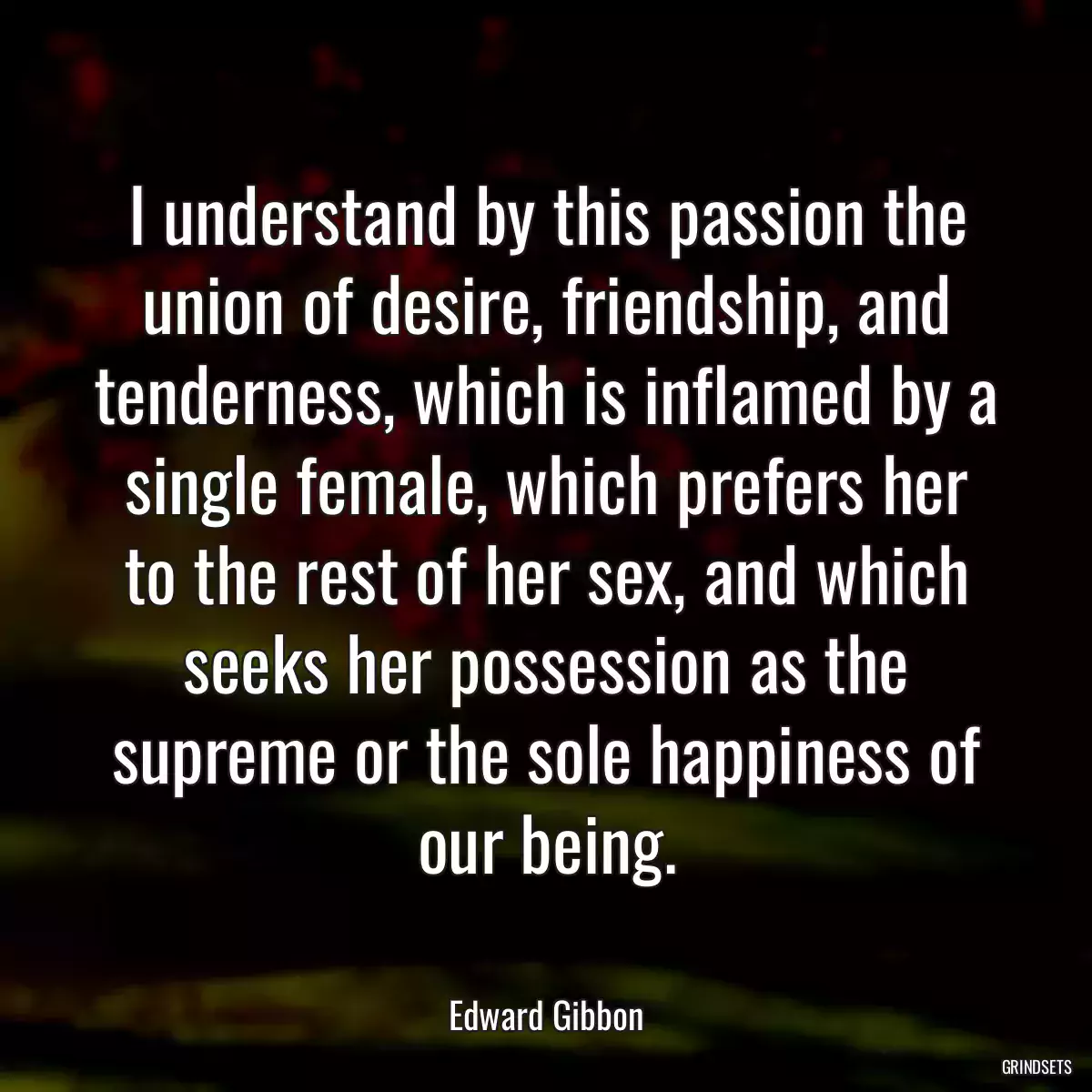
Quotes Edward Gibbon - page 3
Find dozens of Edward Gibbon with images to copy and share.

A warlike nation like the Germans, without either cities, letters, arts, or money, found some compensation for this savage state in the enjoyment of liberty. Their poverty secured their freedom, since our desires and our possessions are the strongest fetters of despotism.
The Gauls derided the hairy and gigantic savages of the North; their rustic manners, dissonant joy, voracious appetite, and their horrid appearance, equally disgusting to the sight and to the smell.
The Germans, in the age of Tacitus, were unacquainted with the use of letters; and the use of letters is the principal circumstance that distinguishes a civilised people from a herd of savages incapable of knowledge or reflection. Without that artificial help, the human memory soon dissipates or corrupts the ideas intrusted to her charge; and the nobler faculties of the mind, no longer supplied with models or with materials, gradually forget their powers; the judgment becomes feeble and lethargic, the imagination languid or irregular.
You may also like
That country [Carthage] was rapidly sinking into the state of barbarism from whence it had been raised by the Phoenician colonies and Roman laws; and every step of intestine discord was marked by some deplorable victory of savage man over civilized society.
The savage nations of the globe are the common enemies of civilized society; and we may inquire, with anxious curiosity, whether Europe is still threatened with a repetition of those calamities, which formerly oppressed the arms and institutions of Rome.
The Indian who fells the tree that he may gather the fruit, and the Arab who plunders the caravans of commerce are actuated by the same impulse of savage nature, and relinquish for momentary rapine the long and secure possession of the most important blessings.
A heart to resolve, a head to contrive, and a hand to execute.
A martial nobility and stubborn commons, possessed of arms, tenacious of property, and collected into constitutional assemblies form the only balance capable of preserving a free constitution against the enterprise of an aspiring prince

The character of the tribunes was, in every respect, different from that of the consuls. The appearance of the former was modest and humble; but their persons were sacred and inviolable. Their force was suited rather for opposition than for action. They were instituted to defend the oppressed, to pardon offences, to arraign the enemies of the people, and, when they judged it necessary, to stop, by a single word, the whole machine of government.
There are two very natural propensities which we may distinguish in the most virtuous and liberal dispositions, the love of pleasure and the love of action. If the former is refined by art and learning, improved by the charms of social intercourse, and corrected by a just regard to economy, to health, and to reputation, it is productive of the greatest part of the happiness of private life.
To the love of pleasure we may therefore ascribe most of the agreeable, to the love of action we may attribute most of the useful and respectable, qualifications. The character in which both the one and the other should be united and harmonised would seem to constitute the most perfect idea of human nature.
The complaints of contemporary writes, who deplore the increase of luxury and deprevation of manners, are commonly expressive of their peculiar temper and situation. There are few observers who possess a clear and comprehensive view of the revolutions of society, and who are capable of discovering the nice and secret springs of action which impel, in the same uniform direction, the bland and capricious passions of a multitude of individuals.
The love of liberty was the ruling passion of these Germans; the enjoyment of it, their best treasure; the word that expressed that enjoyment the most pleasing to their ear. They deserved, they assumed, they maintained the honourable epithet of Franks or Freemen; which concealed, though it did not extinguish, the peculiar names of the several states of the confederacy.
The progress of manufactures and commerce insensibly collects a large multitude within the walls of a city: but these citizens are no longer soldiers; and the arts which adorn and improve the state of civil society, corrupt the habits of the military life.
A state of skepticism and suspense may amuse a few inquisitive minds. But the practice of superstition is so congenial to the multitude that, if they are forcibly awakened, they still regret the loss of their pleasing vision.
Under a democratical government the citizens exercise the powers of sovereignty; and those powers will be first abused, and afterwards lost, if they are committed to an unwieldy multitude.
You may also like

But how shall we excuse the supine inattention of the Pagan and philosophic world to those evidences which were presented by the hand of Omnipotence, not to their reason, but to their senses? During the age of Christ, of his apostles, and their first disciples, the doctrine which they preached was confirmed by innumerable prodigies. The lame walked, the blind saw, the sick were healed, the dead were raised, daemons were expelled, and the laws of Nature were frequently suspended for the benefit of the church.